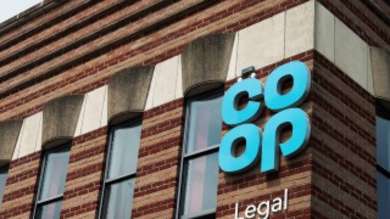
Coroner and inquest solicitors

Our inquest solicitors can provide legal advice and representation when a death is referred to the coroner.
If you have lost a loved one due to a fatal accident or negligence, it is likely that a coroner's inquest will be opened to establish how they died.
Our coroner and inquest solicitors can provide legal advice on the coroner's processes and procedures, so you know exactly what to expect. We can also provide representation at the inquest hearing.
It's important to have legal experts on your side to make sure all the facts about your loved one's death are investigated.
If the evidence heard during the coroner's inquest suggests the death may have been caused by someone else's actions or negligence, the family may be able to make a claim for compensation on behalf of the person who died.
Cost of legal representation at an inquest
While legal aid is available to some people to assist with legal fees during an inquest, many will not be entitled this financial help. This means that family members can be faced with large legal bills if they want professional advice and legal representation during their loved one's inquest.
At Co-op Legal Services, our coroner and inquest solicitors can provide inquest representation either on a no win no fee basis, or on a transparent, fixed fee basis.
No win no fee inquest solicitors
If the death was caused by someone else's actions or negligence, you may be entitled to make a civil claim for compensation (such as a fatal accident claim or medical negligence claim). If we are instructed to take on this claim, we can usually represent you for both the claim and the inquest on a no win no fee basis.
This means that neither you nor any of your loved ones will need to cover the cost of the legal fees yourselves.
If your claim is successful, the costs will be recovered from the other side. If your claim is unsuccessful, we will not charge you our fees.
Do I need a solicitor at an inquest?
The inquest process can be complicated. You don’t have to have legal representation during an inquest, but it can be valuable to have legal support to make sure the facts are properly investigated and you get the answers you need.
The inquest can help you understand the circumstances around the death and if it’s possible to bring a civil claim against a third party. If we believe that there are grounds for a fatal accident or wrongful death claim, then we can also take care of this on your behalf.
With our inquest representation service, our coroner and inquest solicitors will:
- provide legal representation at the inquest hearing
- advise you on the inquest process and procedure, so you know exactly what to expect
- act on your behalf, alongside a barrister, to ensure all your questions are answered about the cause of death and events leading up to the death
- advise whether the evidence suggests the death was avoidable and, if so, represent you on a no win no fee basis (subject to a suitability assessment)
- provide representation on a fixed fee basis if our no win no fee service in unsuitable
Contact our coroner and inquest solicitors to find out more. This service is only available if the death occurred in England or Wales.
What does a coroner do?
When someone dies, the death is sometimes reported to a coroner to establish the cause of death. They will investigate:
- who died
- when they died
- where they died
- how they died
The coroner acts as an independent judge to look at the facts surrounding the death. If the cause of death is clear, they will issue a certificate to the registrar who will register the death.
What is an inquest?
An inquest is a legal investigation by a coroner to establish the circumstances around a death. It will cover factors such as how, when and why the death occurred, but it won't establish if anyone was at fault for the death.
If the evidence heard at the inquest indicates the death was caused by the actions or negligence of others, it is likely that a wrongful death or fatal accident claim can be brought.
If a claim is brought and compensation is awarded to the estate, then probate will be needed to administer the estate. Our coroner and inquest probate solicitors can advise on how probate works when the coroner is involved.
When does a coroner hold an inquest?
The coroner will call an inquest into a death if the cause is sudden, unnatural or violent.
If the cause of death is unclear or unknown, they will investigate further by carrying out a post-mortem. Following the post-mortem, the coroner may decide to hold an inquest into the death.
The purpose of the coroner's inquest is to establish the circumstances surrounding the death, including where and how it happened.
The coroner must hold an inquest into the death if:
- the cause of death is still unknown after the post-mortem
- the death may have been violent or unnatural
- the death happened while the person was in prison or police custody
- the death happened while the person was detained under the Mental Health Act
- the death happened in a hospital or care setting
Incidents that could require an inquest include:
- car accidents
- accidents at work
- road traffic accidents
- accidents in a public place
- slips, trips and falls
- medical negligence
What happens during an inquest?
To help you understand what to expect, we've broken the inquest process down into three stages.
About Co-op Legal Services
As part of the largest Co-operative organisation in the UK, Co-op Legal Services works to ensure that our clients receive the best legal advice and support services available from our teams of personal injury and clinical negligence solicitors, legal executives and staff.
We are regulated by the Solicitors Regulation Authority (SRA) and several of our Personal Injury Solicitors are members of the Association of Personal Injury Lawyers (APIL).
Co-op Legal Services has over 800 staff working in different businesses with offices in Manchester, Bristol, Stratford-upon-Avon, Sheffield and London.
Related articles


